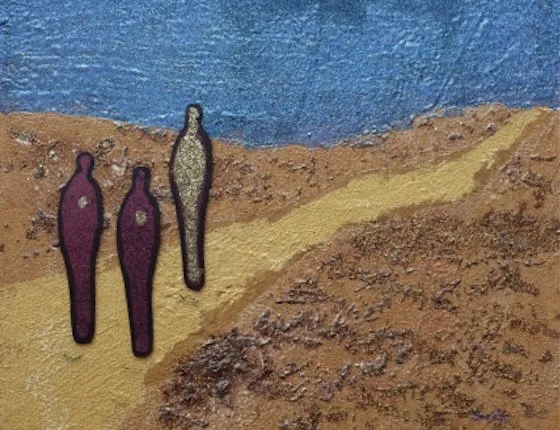A Letter from Lindy June 1
Hello Pilgrims,
I fell down a delightful rabbit hole this week as I have been preparing this letter and for Graduation/Ascension Sunday. I find it intriguing to lay alongside our beloved young people at this threshold of their lives, the disciples, blessed by Jesus as he departs to pick up his mantle of mission and ministry.
The rabbit hole opened with my remembering an article I perused a week or so ago about the challenge this year’s commencement speakers found putting pen to paper (or fingers to a keyboard, more likely ;) That is if they wrote their speeches themselves rather than hiring those with a gift for words. Whoever the author, finding the appropriate tone and tenor amidst the current headwinds of our country has become a high-wire act, it seems. The ears of a vengeful, retributive empire requires nuance.
As I went searching, I came upon two interviews that “opened my mind to the scriptures” to take a page from our gospel. One was an interview from the Believing project of the NY Times about how people struggle to talk about religion and spirituality with “On Being” host Krista Tippett called, Why Is It So Hard to Talk About God? That article led me to the transcript of Tippett interviewing Rev. Barbara Brown Taylor in 2023 titled, “This Hunger for Holiness.”
There were so many morsels to savor, I will be pondering for a while. Hopefully bringing their questions into conversation with you, for I believe they are timely and deeply important.
One answer Tippet gave to the urgency of this moment with regard to our country’s young people, has held my attention as I pray for our graduates, most of whom sadly slip from their church’s embrace at this point of life’s transition,
“Young people are growing up in a world where they expect things to go badly. They look at the future as a very fraught prospect. They know that we are in crisis and that whatever they do with their lives, it’s going to be what is the work of their lifetimes. There’s no quick fixes for anything. In my experience, a lot of them are asking commensurately serious questions — theological questions. They want to talk about lamentation, repentance, confession and redemption. Those are words that have practices attached. They have gravity.
Their answers aren’t found in the political realm or in the world of secularized education or in culture– these are theological questions. They are serious, rigorous ways of thinking and analyzing. They are possibly existentially relevant to whether we actually flourish as a species in this century, or merely survive. Because all of our great challenges as a species have a huge moral dimension. And people don’t stop having spiritual lives and moral lives in the absence of a belief in God or in the absence of religious affiliation.
If I had 20 or 30 years ahead of me working on this, I’d ask: How do we unlock the richness these religious traditions have, the intelligence these traditions have? How do we use our capacity for moral imagination in the service of the world?”
Just as Jesus blessed the disciples to carry on his mission and ministry, so too do we commission our graduates to go out into the world, in whichever way they intend, to use their capacity for moral imagination in the service to the world. I pray they have the practices we have instilled in them as anchors. This is our hope.
I will not be around Pilgrim in 20 or 30 years, but I trust in our graduates capabilities, much as I do in the ways Pilgrim has shaped them into being.
🙏 Pastor Lindy
(she/her) why pronouns matter
Art: "Did not our hearts burn within us while he talked to us on the road...?"
Acrylic paint and pumice gel on canvas board and paper, embossing powder.
By: Sue Carroll, Art2liftspirits.com

